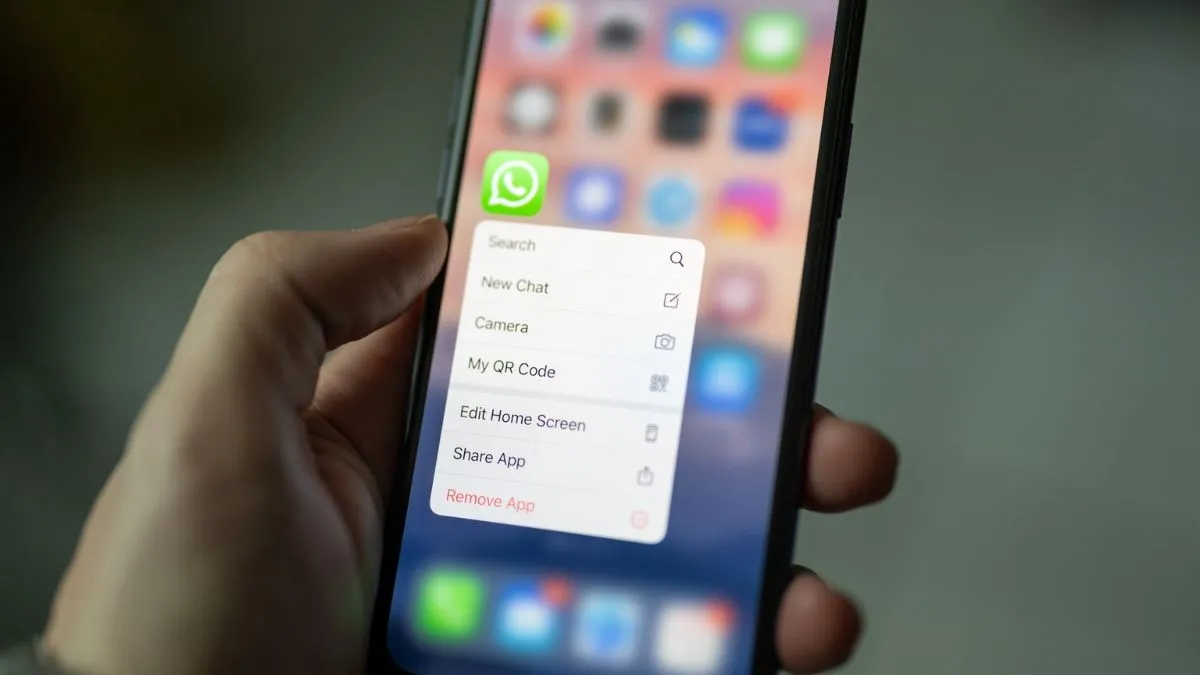Highlights
- WhatsApp to introduce messaging across platforms like Signal and Telegram.
- Feature activation requires user consent and isn’t default.
- Cross-app chats are to be stored in a separate “third-party chats” inbox.
- Interoperability depends on third-party services agreeing to Meta’s terms.
WhatsApp is on the verge of introducing a groundbreaking feature that will enable users to send messages across different platforms, such as Signal and Telegram.
This development is propelled by the European Union’s mandate requiring Meta to open up its messaging services by March, a directive that’s also prompting Apple to diversify iPhone app sourcing in Europe.
Despite the anticipation, the specifics of how this cross-messaging functionality will materialize have been somewhat elusive, with only some speculation coming from WhatsApp beta versions until now.
Brouwer, who has experience with Meta’s encryption rollout for its Messenger app, said: There’s real tension between offering an easy way to offer this interoperability to third parties whilst at the same time preserving the WhatsApp privacy, security, and integrity bar. I think we’re pretty happy with where we’ve landed.
Cross-Platform Messaging: A New Frontier

Dick Brouwer, an engineering director at WhatsApp, recently shed light on how this integration might function in practical terms during an interview with Wired.
WhatsApp users can engage in conversations with users of other encrypted messaging services.
However, this feature requires user consent to activate and won’t be available by default.
Navigating the Integration

The integration process introduces a notable distinction in user experience.
Instead of merging all conversations into a single inbox, messages from third-party apps will be allocated to a distinct “third-party chats” section.
This separation necessitates additional steps to access these conversations, a decision attributed to WhatsApp’s inability to ensure equivalent privacy and security standards across all platforms.
The Path to Interoperability

For cross-app messaging to be feasible, third-party services must agree to a set of terms laid out by Meta.
The specifics of these agreements remain undefined, and it’s going to be totally possible that some platforms might resist entering into such arrangements with Meta.
As you would have it, Apple is reluctant to integrate iMessages into this system, considering it has always been opposed to similar cross-platform initiatives.
Brouwer mentioned a preference for the Signal encryption protocol, already utilized by WhatsApp, Messenger, Google Messages, and Skype, suggesting a readiness for interoperability among these services.
Nonetheless, platforms employing different encryption methods might be hesitant to switch, though Meta is open to considering alternative encryption standards provided they meet WhatsApp’s security criteria.
FAQs
Q: How will WhatsApp’s cross-platform messaging work?
A: Users will be able to send messages to and receive messages from other encrypted messaging services like Signal and Telegram, upon opting in to this feature.
Q: Will all my chats be in one place with cross-platform messaging?
A: No, messages from third-party apps will appear in a designated “third-party chats” inbox within WhatsApp, separate from regular WhatsApp conversations.
Q: What do other messaging platforms need to do to become interoperable with WhatsApp?
A: They must agree to a set of terms defined by Meta, which may include adopting certain encryption protocols like the Signal encryption protocol used by WhatsApp.
Q: Can I automatically start using this feature once it launches?
A: No, users will need to manually opt in to activate cross-platform messaging functionality within WhatsApp.
Q: Will Apple’s iMessage be part of WhatsApp’s cross-platform messaging?
A: It’s unlikely, as Apple has historically been resistant to participating in similar cross-platform messaging initiatives.
Q: WhatsApp Cross-App Chatting How will it work ?
A: While the exact details are still under wraps, here’s what is known so far:
Opt-in Required: You won’t be automatically enrolled in cross-app chat. You’ll need to opt-in to activate the feature.
Separate Inboxes: Don’t expect a unified inbox. Messages from other apps will appear in a separate “third-party chats” section, maintaining WhatsApp’s privacy standards.
Technical Hurdles: Integrating different protocols and ensuring security across platforms is a complex challenge. Expect some bumps along the road.
Q: What are the disadvantages of Whatsapp Cross App Chatting ?
A: Mixing platforms with varying privacy levels raises questions about data security.
Cross-app features might be restricted compared to native app experiences.
Separate inboxes might be inconvenient for some users.
Q: What are the advantages of Whatsapp cross app chatting?
A: No more switching between apps to reach everyone.
Connect with friends on different platforms without waiting for them to switch.
It Could lead to improved features and services across messaging apps.
Q: How long is Interoperability been under work ?
A: According to Brouwer, the company has been working on interoperability for around two years now.
The move comes as WhatsApp parent company Meta has been designated a ‘gatekeeper’ company under the EU’s Digital Markets Act, which requires it to open up its messaging services within six months.
Q: Will Interoperability allow group chats & calls ?
A: Interoperability will allow WhatsApp users to exchange messages, images, videos and files with people on other messaging platforms. Brouwer said it will focus initially on one-on-one messaging rather than group chats or calls.
Users will have to opt in to activate the feature. Importantly, WhatsApp will keep messages from other apps separate – they will appear in a ‘third party chats’ section rather than the main inbox. This is to maintain WhatsApp’s high privacy standards.
Q: Will iMessage open to interoperability?
A: Apple’s iMessage may also have to offer interoperability under the EU’s Digital Markets Act.
Apple has not commented on its plans.
In the US, it faces separate scrutiny about keeping iMessage as a closed platform. Opening it up could facilitate communication between iOS and Android users.
Q: Does EU demand interoperability within six months ?
A: Under EU rules, interoperability has to launch within just six months. However, it’s unclear if it will be Europe-only initially.
WhatsApp did not clarify if the feature will be available globally. When enabled, a “third party chats” section will appear for users, as previously spotted in WhatsApp beta versions by WABetaInfo – although this page isn’t directly accessible or functional at the moment.
Q: Which apps will link to whatsapp in interoperability?
A: WhatsApp has not revealed which platforms might link up. Major messaging apps like Telegram, Signal, Snap and Google did not comment on plans to enable WhatsApp interoperability.
Given the technical complexities, it may take time for third parties to launch integrations after WhatsApp publishes its March guidance.
Also Read: WhatsApp Channels Update Brings Audio Messages, Polls, and Enhanced Admin Features
Also Read: WhatsApp to Enhance Calling Experience with New Favourites Feature
Also Read: WhatsApp Android App to Soon Introduce Pinning Feature for Channels
